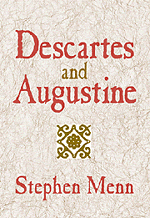3 - Plotinus
Published online by Cambridge University Press: 04 August 2010
Summary
Augustine and the Platonists
To understand Augustinianism, we must read Augustine's written work as the product of a search for wisdom. The desire for wisdom is constant throughout Augustine's life; he tries different means, and in the end he thinks he has succeeded in part, but only in part. Augustine will transmit to later thinkers both the ideal of wisdom and the means that he has discovered or adapted from earlier sources, whether Christian authorities or Platonic philosophers, for achieving this end. We can best understand Augustinian wisdom by focussing both on his Confessions, describing his search for wisdom, and on those texts, especially the early dialogues culminating in the De Libero Arbitrio, in which he tries to communicate the wisdom that he discovered, both in the Platonists and in Christianity, in the annus mirabilis 386. The Confessions and these early dialogues give consistent and mutually illuminating accounts of Augustine's discovery; undeniably, though, Augustine's thought develops after 386 (both before and after the writing of the Confessions around 397), and we will discuss later changes where they are relevant to the Augustinianisms of later thinkers, including Descartes.
The Confessions is about wisdom. It is misleading to think of the book as describing Augustine's conversion to Christianity: conversio is indeed a central theme, but for Augustine this word means, not a change of religious allegiance, but a turning toward God and away from other things.
- Type
- Chapter
- Information
- Descartes and Augustine , pp. 73 - 129Publisher: Cambridge University PressPrint publication year: 1998



